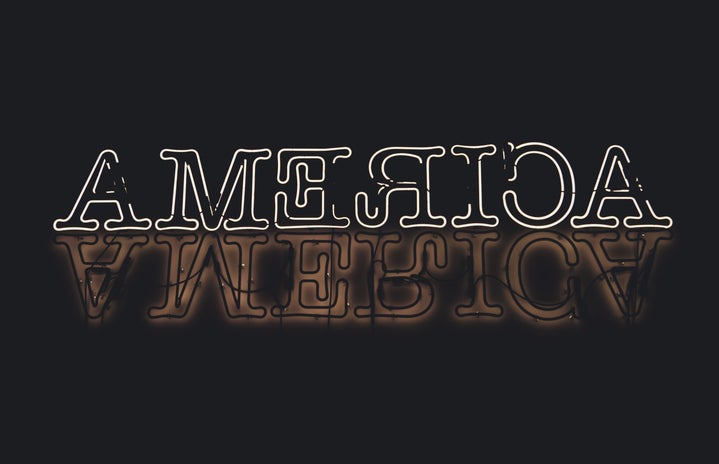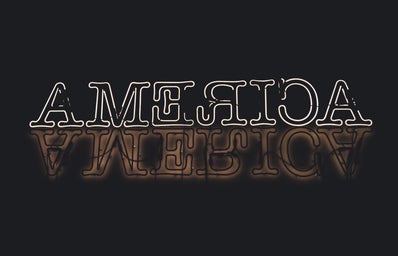Content Warning: This opinion-editorial discusses politics, white supremacy, and Trumpism.
Whenever I discuss how frustrated I am with the state of the nation, I habitually say that “I’m not very patriotic.” It is strange that the word “patriot,” at least in my mind, has such a negative connotation: as though it would be shameful for someone like me, a passionate advocate for equity, to bear that title. I feel the same way about the American flag. When I see one plastered onto someone’s hat or T-shirt, twisted into a piece of merchandise, I am instinctively repulsed.
I have since realized that I am, in fact, very patriotic. A patriot is a person who loves, fights for, and takes pride in their nation. Thus, to determine if we are patriots, it comes down to how we define nation: do we see it as a body of people, or do we see it as an arena for political power? Who, or what, will we choose to defend?
Like the American flag, the term “patriot” is meant to stand for our national identity. It is meant to bind us together in celebration of our diverse people, while recognizing the ongoing struggle for equity and justice. When this identity is poisoned by fascist regimes, it becomes natural for many people to alienate themselves from such a title.
In June of 2020, I watched Donald Trump’s first speech to Americans in response to the nationwide Black Lives Matter protests on live television. I will never forget my terrified astonishment when he declared, “Our country always wins.” His statement implied that the nation had entered a competition with another faction, a struggle in which only one could achieve victory. But this other faction was the people—the protestors fighting for their lives. In making this statement, Trump segregated the people from the nation and addressed the people as his opponent. He unwittingly revealed that he did not see America as a country made up of living, breathing citizens: he saw it as an arena through which he could wring unhinged power. This is Trumpist patriotism: the belief that “defending America” means not protecting the rights of the people, but protecting every available means of political power and white supremacy.
Even after Trump was voted out of office, this ideology has continued to leach into the minds of his supporters. While they may not see America as a tool for power as he did, they certainly do not see it as a people. January 6th’s seditious attacks on the Capitol—and the terrorists’ attempt to oust our democratic processes—have made that clear. The will of the people did not register for them; only the exaltation of their political god.
While true patriotism is supposed to unite, Trumpist patriotism has only ever divided. Republican leaders and constituents stand in heated disagreement about the justification, or lack thereof, for the January 6th insurrection. With the ongoing discourse, Trumpist Republicans have had enough: they now call for the formation of a “Patriot Party” where they can wallow in bigoted ideology, free from any voices of reason left in the Republican Party. Of course, this division perpetuated by Trumpist patriotism not only manifests in the political sphere, but in matters of morality as well. Trumpist patriotism was the motor that propelled the former President’s most egregious act of all: dividing the American people through a disdain for human rights.
Because the president represents the United States in flesh, the same identity translates into items like patriotism and the flag. These American elements have become symbols of corruption, insensitivity, and leadership that have defiled our society and what it means to be an American. Still, this priming for the ideal American patriot—one that is complicit in a society engineered for the white, heterosexual, cisgender man—is not new.
Consider the Pledge of Allegiance. When you recite it, do you even hear anything you say? Do you pay attention to the words that come out of your mouth, or do you speak in the same monotonous, undulating inflection, pausing at all the right moments, emphasizing each syllable at all the right places? Likely, you are robotic. You are artificial.
The pledge was, in fact, created in order to bring corrupt patriotism to the school setting, under the more conspicuous purpose of commemorating Columbus’s arrival to America. Francis Bellamy, the former pastor who wrote the original Pledge of Allegiance in 1891, wanted to encapsulate the unity of the white population, which he believed represented “the American spirit.” He hoped that his pledge would propagandize this concept of “American spirit” so that incoming immigrants, who in his mind “could not assimilate without a lowering of our racial standard,” would not ruin the republic which “real” Americans had constructed.
What is a “real” American? Bellamy believed it was the proud white supremacist, the historic oppressor who defended their nation’s principle of subjugation. Trumpist ideology adopts this concept, among several other harmful ones, to sully what it means to be a patriot: a person committed not to defending a sacred people, but rather a repressive agenda.
I now understand that the Trumpist definition of patriotism is not a definition of patriotism at all—rather, it is a redefinition, and one that is utterly flawed. In warping what it means to be a patriot, the former president perpetuated the division of our people, exacerbated systemic oppression, and undermined the foundation of our democracy. The only way for us to heal from this attack on our nation’s integrity is to remember what it means to be a true patriot in America.
To be a patriot should not be to take pride in and be willing to defend the actions of a past leadership so blatantly insensitive and oppressive, but to take pride in and be willing to defend the will, dignity, and diversity of the people. Therefore, in order to stay true to this identity, we must divert our loyalty from a principle of repression and invest it in the people themselves. We must be willing to engage in difficult conversations, to learn and grow, and to raise our voices in service of others.
James Baldwin once said, “I love America more than any country in the world and, exactly for this reason, I insist on the right to criticize her perpetually.” In a world stained by injustice, remembering and restoring true patriotism is not only important for the building of a just future: it is necessary.
I ask you this now. To which do you pledge your allegiance: the flag, or the people?
If you would like to write for Her Campus Mount Holyoke, or if you have any questions or comments for us, please email hc.mtholyoke@hercampus.com.

